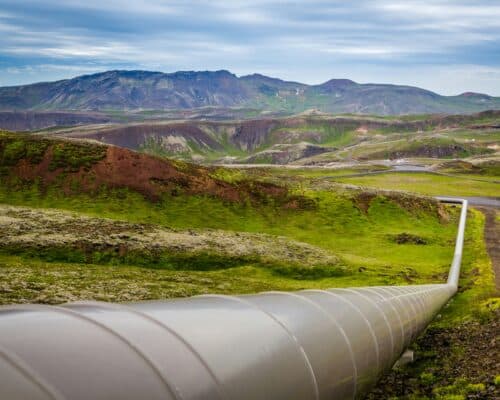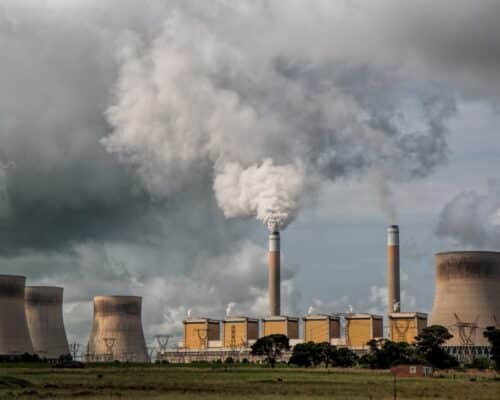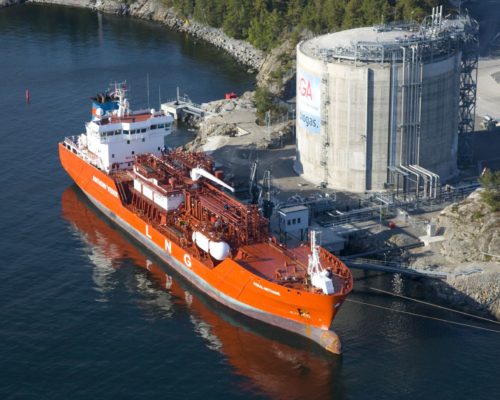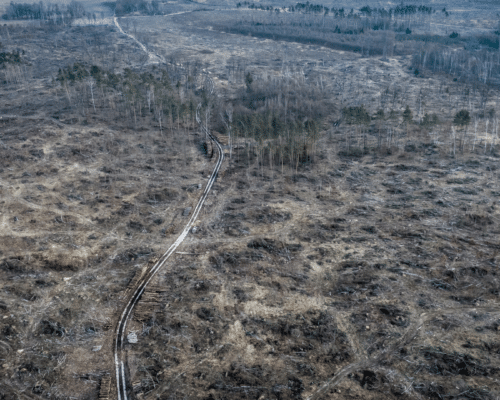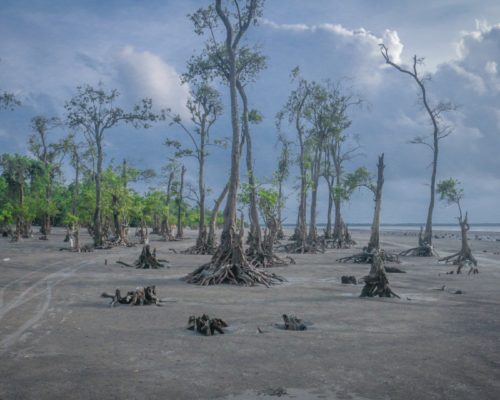Top Concerns of Young Filipinos and How LNG Expansion Magnifies Them
12 August 2022 – by Bill Angelo Bontigao
The Philippines is on the front lines of the climate emergency. A 2021 survey published in The Lancet Planetary Health shows that 92% of young Filipinos believe that the “future is frightening”. Meanwhile, 54.8% say that the things they most value will be destroyed, and 54.9% say that they won’t have access to the same opportunities as their parents.
These are unsurprising, considering that the Philippines has been at the forefront of the worsening climate impacts. Extreme weather events, sea-level rises, and longer droughts threaten people’s access to education and other basic needs. These include food and shelter.
These fears and worries have increased due to the government’s lack of a coherent approach to curbing the climate crisis. It allows major climate polluters to operate without restraint. And this is the case for the energy landscape in the country.
While the new government is vocal about the need for a massive uptake in renewable energy, it also openly favours the expansion of liquified natural gas (LNG) to meet the country’s electricity demands.
But, LNG is not the solution to the climate and energy crises. On the contrary, it affects young Filipinos and exacerbates their top concerns in more ways than one.
Climate Crisis and Its Long-term Impacts
Industry lobbyists have spent time and resources to promote the narrative that natural gas is clean. They say that it is a viable “transition fuel” on the road to renewable energy. But, experts have proven that this is not the case.
Methane, the main component of natural gas, is 80 times more potent than carbon dioxide over a 20-year period at trapping heat in the Earth’s atmosphere. The whole life cycle of natural gas – from production to transportation – can emit significant volumes of methane and other greenhouse gases (GHG). In a study, the Natural Resources Defense Council said GHG emissions “from the extraction, transport, liquefaction, and re-gasification of LNG can be almost equal to the emissions produced from the actual burning of the gas”.
For over a decade, developing nations, including the Philippines, were persuaded to build fossil-based energy plants because they strongly believed doing so would advance their economies. And despite the warnings of the Intergovernmental Panel on Climate Change (IPCC), the very recent COP26 statement regarding the phasing out of fossil fuels has served as an excuse for energy corporations to build new plants.
Studies from the IPCC and the International Energy Agency state that no new oil and gas fields should be approved for 2021. This is in order to meet global climate targets for reducing emissions.
The Philippines has the second-largest planned gas expansion in Southeast Asia. It has 29.9 GW in development, including 27 gas power plants and 9 LNG terminals. Behind this massive expansion is San Miguel Corporation, which alone has a 14.1 GW gas plant in the pipeline.
Degrading the Planet and Biodiversity
The degradation of the natural environment and loss of biological diversity are serious problems. The development and operation of LNG and fossil fuel plants are making this problem worse.
Most of the gas projects in the country are located in the Verde Island Passage. The passage is important for biodiversity and has roughly 1,736 marine fish species. It is also home to whale sharks, sea turtles, and an incredible array of coral.
The rich marine biodiversity in this passage is a primary source of livelihood for the inhabitants of the surrounding provinces. The passage attracts tourists, as it serves as a diving spot and a fishing ground. Unfortunately, this attracts energy businesses because it serves as a hot spot for massive fossil gas expansion. These developments will directly impact both marine biodiversity and the community’s quality of life.
Other coastal areas like the Tañon Strait, the renewable energy capital of the Philippines, and Navotas, the fishing capital in Metro Manila, are also at risk.
High Prices of Basic Commodities
The Philippines’ dependency on fossil fuels like LNG will further increase the burden of high prices for our basic commodities. The situation is even more evident now due to global gas price hikes following Russia’s invasion of Ukraine.
Fossil fuel dependency has affected the food and transportation industries. The prices continue to rise. And this will always be the case if the country depends on imported fossil fuels.
Why Young Filipinos Should Oppose LNG
The United Nations General Assembly recently declared that everyone has a right to a healthy environment. But, with LNG developments, the hope for a healthy future for young Filipinos, especially island-dwellers, is uncertain.
The current situation threatens Filipinos’ right to a healthy environment. The provinces of Batangas, Occidental Mindoro, Oriental Mindoro, Marinduque, Romblon, Negros Occidental, and other nearby provinces are becoming the hot spots of destructive LNG projects.
The repercussions of every decision and plan made by those in power will undoubtedly affect the youth and younger generations. Meanwhile, these projects are likely to affect the futures of people all over the country. The projects will impact peoples’ way of life and the ability to continue their traditional and cultural practices. Additionally, current and future generations are more likely to be exposed to high concentrations of air pollutants. These can result in harmful health effects, like respiratory symptoms, cardiovascular disease, and cancer.
The country needs ambitious plans to transition to renewable energy. It needs to lessen emissions and secure a healthy future without pursuing a transition that will further put lives and futures at risk.
Every islander also dreams of development. But, when their lives and dreams are threatened, who are we really serving with this progress?
Bill Angelo Bontigao is a young climate advocate from an island in the Bicol region, which is among the most vulnerable to climate impacts. After surviving one of the strongest typhoons in the country in 2020, his organisation proactively called on the Philippines’ government to uphold climate justice and declare a climate emergency.
Disclaimer: The views and opinions expressed in this article are those of the authors and do not necessarily reflect the official policy or position of Energy Tracker Asia.
